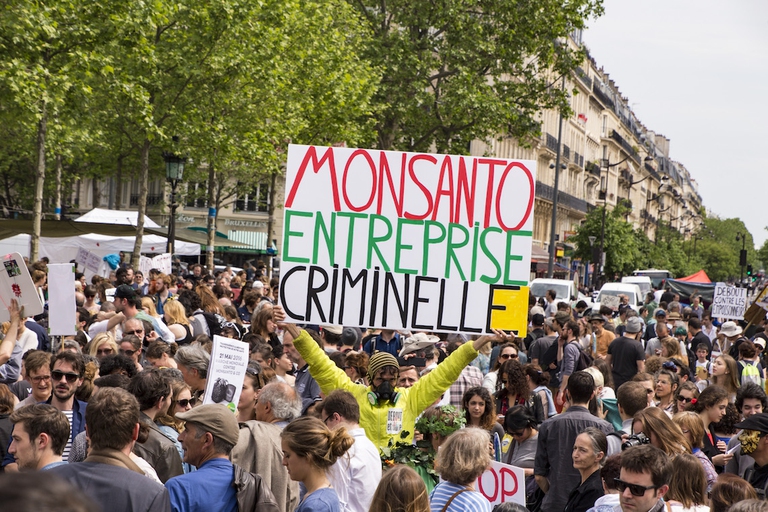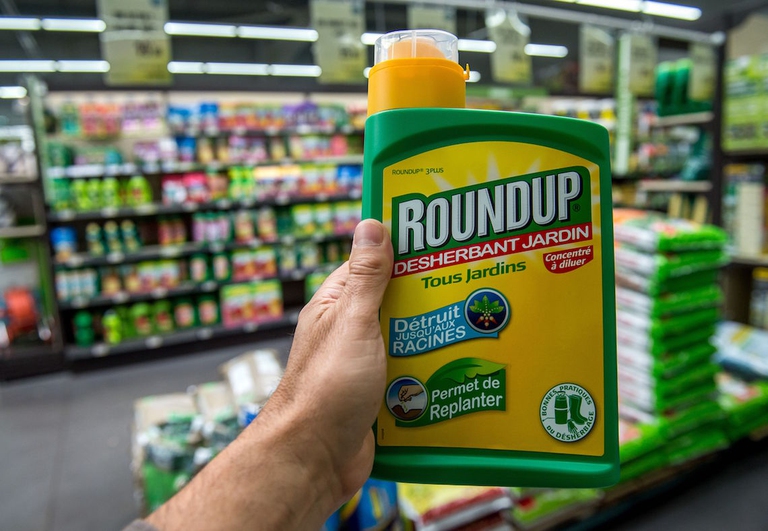
South African court dismisses a major lawsuit by 140,000 Zambian women and children against Anglo American for Kabwe lead poisoning. A setback for affected communities enduring the lasting impact of lead contamination.
A new US report warns of the presence of glyphosate in honey. The Roundup herbicide was found in all the samples analysed by the FDA.
Residues of glyphosate – the main ingredient of Monsanto’s famous Roundup weed killer – were found in all of the samples of honey the Food and Drug Administration has tested in a recent examination.
In some cases, according to the Huffington Post USA “honey showed residue levels double the limit allowed in the European Union”. The documents compiled by the FDA reveal also that the herbicide marketed by the American multinational company was found in some samples of soybean and wheat.
The study of the FDA is even more alarming considering that the World Health Organisation has rated glyphosate as “possibly carcinogenic to humans”. For this reason, many environmental and consumer protection associations have long been asking associations to conduct this study.
This is the first time the FDA has tested glyphosate on American food products, even though it examined a number of pesticides in past years. The only tests on glyphosate have been conducted in the United States by private companies, NGOs and voluntary scientists.
The piece of news on glyphosate in honey has been announced exactly in the period when the US Environmental Protection Agency (EPA) is completing its study on the impact of this substance on human health in order to decide whether to limit its use or not. A public meeting has been scheduled between 18 and 21 October in Washington to take stock of EPA’s work. This event could spark protests and debates: the report was estimated to be published in 2015, while now, according to the association, it will be released in spring 2017.
Siamo anche su WhatsApp. Segui il canale ufficiale LifeGate per restare aggiornata, aggiornato sulle ultime notizie e sulle nostre attività.
![]()
Quest'opera è distribuita con Licenza Creative Commons Attribuzione - Non commerciale - Non opere derivate 4.0 Internazionale.
South African court dismisses a major lawsuit by 140,000 Zambian women and children against Anglo American for Kabwe lead poisoning. A setback for affected communities enduring the lasting impact of lead contamination.
Controversial African land deals by Blue Carbon face skepticism regarding their environmental impact and doubts about the company’s track record, raising concerns about potential divergence from authentic environmental initiatives.
Majuli, the world’s largest river island in Assam State of India is quickly disappearing into the Brahmaputra river due to soil erosion.
Food imported into the EU aren’t subject to the same production standards as European food. The introduction of mirror clauses would ensure reciprocity while also encouraging the agroecological transition.
Sikkim is a hilly State in north-east India. Surrounded by villages that attracts outsiders thanks to its soothing calmness and natural beauty.
Sikkim, one of the smallest states in India has made it mandatory for new mothers to plant saplings and protect them like their children to save environment
Chilekwa Mumba is a Zambian is an environmental activist and community organizer. He is known for having organized a successful lawsuit against UK-based mining companies.
What led to the Fukushima water release, and what are the impacts of one of the most controversial decisions of the post-nuclear disaster clean-up effort?
Nzambi Matee is a Kenyan engineer who produces sustainable low-cost construction materials made of recycled plastic waste with the aim of addressing plastic pollution and affordable housing.









